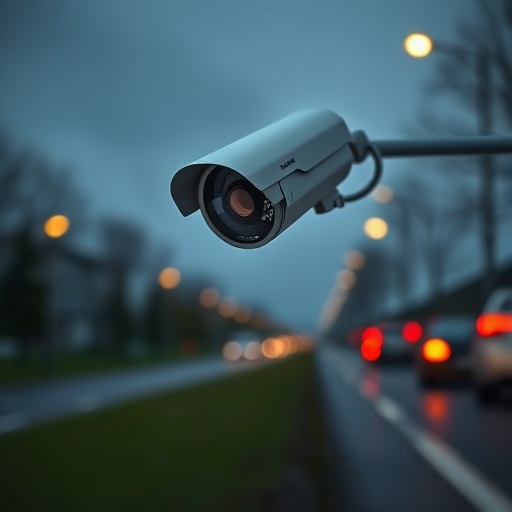Flock Safety, a company that sells automated license plate reader (ALPR) systems, has positioned itself as a champion of safer neighborhoods and crime deterrence. Its sleek, solar-powered “Flock cameras” are being deployed across suburban streets, private businesses, and even entire municipalities. But the creeping presence of these devices—and the precedent they set—shouldn’t make us feel safer. It should make us profoundly uneasy.
While marketed as a tool to fight crime, Flock cameras represent the first wave of a much more invasive future. At their core, these systems are mass surveillance networks capable of logging the movement of millions of people, without their consent, and often without any legal oversight. Each camera captures and stores data about every car that passes by: plate number, time, location, and sometimes vehicle characteristics like color and make. This is a level of tracking that used to require warrants, resources, and probable cause—now it just takes a camera on a street corner and a data plan.
But what happens when the technology becomes cheap enough to democratize?
We’re rapidly approaching a future where an open-source alternative could emerge—one with a publicly accessible database, not locked behind law enforcement agencies or city councils. This is no longer sci-fi speculation. As camera components become more affordable and AI tools become easier to use, DIY surveillance networks could be set up by anyone with a Raspberry Pi, a couple of webcams, and a vendetta.
Compare this to something like the Waze app, which relies on crowdsourced data to share traffic conditions, police presence, and speed traps. While Waze is generally viewed as a convenience, it proved that a motivated user base can build an incredibly detailed, real-time map of what’s happening on the roads. Now imagine that principle applied not just to traffic—but to people. The same mechanics that make Waze useful could turn a future open-source license plate tracking network into a real-time surveillance grid.
And if you want to understand how terrifying that could be, look no further than the case of Luigi Mangione—a serial stalker and violent offender who weaponized online tools and social media to track and terrorize victims. Give someone like Mangione access to a crowdsourced ALPR database, and the result wouldn’t just be harassment—it could be lethal. We’re talking about technology that enables precision stalking on a nationwide scale.
Even more troubling is how physically vulnerable the Flock hardware itself is. These devices are often installed on poles in public or semi-public spaces. They can be stolen, dismantled, and reverse engineered. The firmware can be modified or completely reflashed—turning what was a law enforcement tool into a rogue surveillance node. A malicious actor could repurpose the camera to feed into a private server, bypassing any of Flock’s supposed security and oversight protocols. In a world where firmware hacking is child’s play for bad actors, it wouldn’t take much to turn these devices into tools of oppression, revenge, or exploitation.
Some may argue this kind of surveillance could be used to “keep the powerful accountable.” But the loss of privacy is universal. If CEOs and cops can be tracked, so can victims of domestic violence, whistleblowers, journalists, and everyday citizens. The playing field doesn’t get more fair—it just gets more dangerous. Stalkers, abusers, and extremists would have the same tools as governments. The threat to safety doesn’t just scale—it explodes.
We often talk about surveillance as if it’s binary: government vs. criminals. But the real threat is that these systems turn everyone into both watcher and watched. It’s the normalization of constant tracking. It’s data that lives forever, accessible by whoever gains control of the platform—whether that’s a sheriff, a hacker, or a tech-savvy teenager.
If history tells us anything, it’s that the tools of power eventually trickle down. And once they do, they don’t empower—they destabilize.
Flock’s promise of “safety” might work in the short term. But in the long run, we’re creating a roadmap for a society without shadows, without privacy, and ultimately, without safety for anyone. The technology is neutral. But the future it builds? That depends on how we choose to use it—or how we choose not to.




